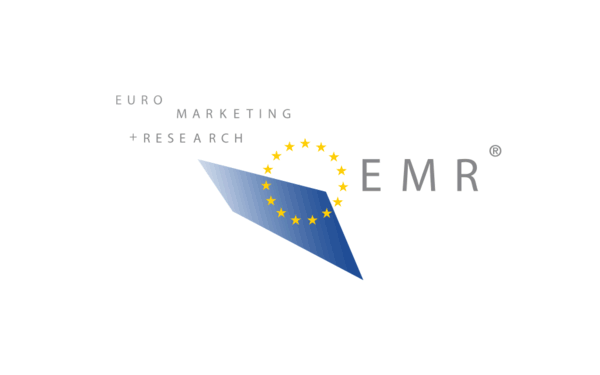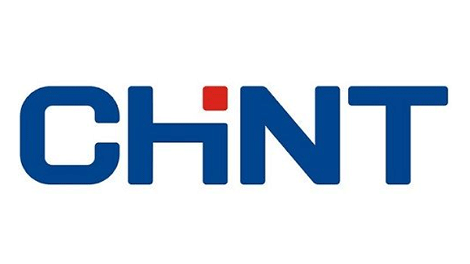CHINT – CHINT was Listed on“DEI Human Kindness Loving Workplace”
CHINT was recently listed on Bloomberg Green 2024 “DEI Human Kindness Loving Workplace” for its outstanding performance in implementing “Diversity, Equality, and Inclusion (DEI)” philosophy in the workplace, which, as an integral part of today’s corporate culture and strategy, emphasizes creating an environment that respects differences, promotes equality, and encourages inclusion within an organization.
DEI, as an integral part of today’s corporate culture and strategy, emphasizes the creation of an environment within an organization that respects differences, promotes equality and encourages inclusion. Bloomberg Green 2024 “DEI Human Kindness Loving Workplace” award is based on the social aspect of the ESG framework, combined with the Bloomberg Gender Equality Index and China’s compliance with labor laws and regulations, to build a comprehensive and detailed evaluation system. CHINT will take this opportunity to continue to build an excellent professional environment, commit to equal opportunities, cultivate an inclusive culture, and respect employee diversity.
In recent years, CHINT has actively pursued DEI and promoted sustainable development. CHINT empowers women by respecting them and giving them opportunities to grow in their daily work.
- CHINT has signed the “Women’s Empowerment Principles (WEPs)” and promise to
Taking positive action and fulfilling many principles to work for gender equality and Women’s Empowerment in the workplace, in competition in the marketplace and in the life of the community.
- CHINT has issued the “Gender Equality Statement” in 2024 and is committed to
(1)Promoting Employee Diversity and Opposing Gender Discrimination
(2)Promoting female leadership at all levels
(3)Care for employees and their families
(4)Creating an open, inclusive, and secure company culture
(5)Sharing our knowledge and experience
In the future, CHINT will continue to implement sustainability in the workplace, with a view to creating a diverse, equal and inclusive (DEI) work environment for its employees. CHINT is committed to becoming a pioneer in the DEI, joining hands with global partners to create a new ecosystem in the workplace.
SourceCHINT Global
EMR Analysis
More information on CHINT: See the full profile on EMR Executive Services
More information on Nan Cunhui (Chairman, Zhengtai Group + Chairman, CHINT Group): See the full profile on EMR Executive Services
More information on Lily Zhang (Executive President, CHINT Electric + President and Chief Executive Officer, CHINT Global): See the full profile on EMR Executive Services
More information on Bloomberg: https://www.bloomberg.com/ + Bloomberg, the global business and financial information and news leader, gives influential decision makers a critical edge by connecting them to a dynamic network of information, people and ideas. The company’s strength — delivering data, news and analytics through innovative technology, quickly and accurately — is at the core of the Bloomberg Terminal. Bloomberg’s enterprise solutions build on the company’s core strength: leveraging technology to allow customers to access, integrate, distribute and manage data and information across organizations more efficiently and effectively.
More information on Vlad Kliatchko (Chief Executive Officer, Bloomberg): https://www.bloomberg.com/company/values/tech-at-bloomberg/features/vlad-kliatchko/ + https://www.linkedin.com/in/vladkliatchko/
EMR Additional Notes:
- DEI (Diversity, Equity and Inclusion):
- https://dei.extension.org/ + Diversity is the presence of differences that may include race, gender, religion, sexual orientation, ethnicity, nationality, socioeconomic status, language, (dis)ability, age, religious commitment, or political perspective.
- Equity is promoting justice, impartiality and fairness within the procedures, processes, and distribution of resources by institutions or systems.
- Inclusion is an outcome to ensure those that are diverse actually feel and/or are welcomed. Inclusion outcomes are met when you, your institution, and your program are truly inviting to all.
- https://dei.extension.org/ + Diversity is the presence of differences that may include race, gender, religion, sexual orientation, ethnicity, nationality, socioeconomic status, language, (dis)ability, age, religious commitment, or political perspective.
- ESG (Environmental, Social and Governance):
- Refers to the three key factors when measuring the sustainability and ethical impact of an investment in a business or company. Most socially responsible investors check companies out using ESG criteria to screen investments.
- ESG metrics are not commonly part of mandatory financial reporting, though companies are increasingly making disclosures in their annual report or in a standalone sustainability report.
- There is not a standardized approach to the calculation or presentation of different ESG metrics.
- Environmental: Conservation of the natural world
- Climate change and carbon emissions
- Air and water pollution
- Biodiversity
- Deforestation
- Energy efficiency
- Waste management
- Water scarcity
- …
- Social: Consideration of people & relationships
- Customer satisfaction
- Data protection and privacy
- Gender and diversity
- Employee engagement
- Community relations
- Human rights
- Labor standards
- …
- Governance: Standards for running a company
- Board composition
- Audit committee structure
- Bribery and corruption
- Executive compensation
- Lobbying
- Political contributions
- Whistleblower schemes
- …
- Environmental: Conservation of the natural world
- Criteria are of increasing interest to companies, their investors and other stakeholders. With growing concern about he ethical status of quoted companies, these standards are the central factors that measure the ethical impact and sustainability of investment in a company.
- Consequently, ESG analysis considers how companies serve society and how this impacts their current and future performance.
- CSR (Corporate Social Responsibility):
- Framework or business model that helps a company be socially accountable to itself, its stakeholders, and the public.
- The purpose of CSR is to give back to the community, take part in philanthropic causes, and provide positive social value. Businesses are increasingly turning to CSR to make a difference and build a positive brand around their company.
- CSR tends to target opinion formers – politicians, pressure groups, media. Sustainability targets here the whole value chain – from suppliers to operations to partners to end-consumers.
- CSR vs. ESG:
- CSR is a company’s framework of sustainability plans and responsible cultural influence, whereas ESG is the assessable outcome concerning a company’s overall sustainability performance.
- The major difference between them is that CSR is a business model used by individual companies, while ESG is a criteria that investors use to assess a company and determine if they are worth investing in.


